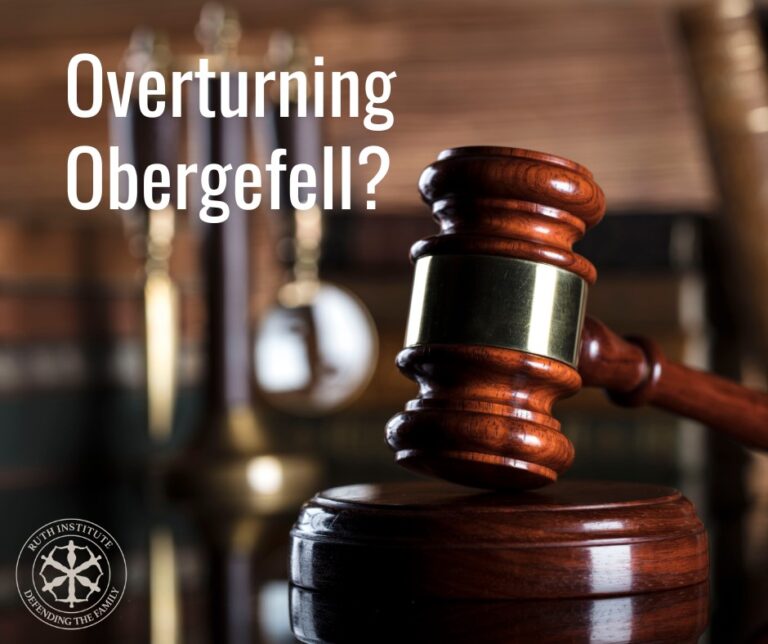by Dr. Jennifer Roback Morse
First published April 11, 2018, at The Stream.
Kevin Williamson has been summarily dismissed from The Atlantic. The editor says it was because Williamson advocated that the law should treat
abortion as murder. But this is hardly a full explanation of the full social process around this disturbing incident. Williamson did not express that
view in The Atlantic’s pages: His opponents resurrected it from a 4-year-old podcast. If the editors at The Atlantic really wanted
a “big tent,” (their supposed reason for engaging Williamson in the first place) they could have found dozens of more moderate pro-life advocates.
No, something else is afoot. Let me explain it. This will take more than 144 characters. Bear with me.
The Two Paths
Suppose you are a woman, and a recent college graduate. You aspire to a career in journalism. You are having sex with someone you would not want to marry.
Maybe he is married to someone else. Maybe he is hopelessly immature, narcissistic, and/or self-absorbed. But since you are using contraception, you
figure its ok.
Then, the unthinkable-statistically-unlikely-but-still-non-zero-probability-event takes place. You get pregnant. You now have four choices:
- Get married, have the baby, and raise the child together.
- Have the baby. You both relinquish parental rights and place the child for adoption.
- Have the baby. You raise the child alone.
- Abort the child.
The choice you make now will shape your belief system for a long time. There are roughly two paths:
- The pro-life path: Your decision and subsequent experience convinces you that the child in the womb is a unique and irreplaceable human being. Therefore,
you become less inclined to believe that abortion is morally justified. - The pro-abortion path: Your decision and subsequent experience convinces you that abortion is a moral necessity.
I think you’ll agree that the woman or couple that chooses life for their child is less likely to support abortion, either before or after that decision.
Likewise, many, many women who abort their children become convinced or were already convinced, that abortion is a necessity. They come to believe
that even if it is a killing, it is a justifiable killing, and not murder at all. Their experience either establishes this belief or confirms and reinforces
it.
Here is why this is relevant to Kevin Williamson.
The Women Who Make Up Mainstream Journalism
Which women, making which choice, are more likely to land a job at a prestigious publication like The Atlantic? Women who have their babies? Or
women who abort?
In general, the woman with child-care responsibilities is at a competitive disadvantage compared with the woman who does not. This is especially true during
the early career-building phase. (This period of life just happens to be near the peak of a woman’s natural fertility. Which produces another whole
set of problems. But I digress.)
I don’t say that a woman who has a baby shortly after college could never have a successful career in journalism. I just say it is unlikely. In fact, I
will say something even stronger: In the social universe as it is today, delayed child-bearing is the price of entry into the professions. Contraception,
backed up by abortion, is necessary for women to compete. The United States Supreme Court said as much in its decision in Planned Parenthood v. Casey , back
in 1992. (I hasten to add: this is not the only possible social environment in which women can participate in higher education and the professions:
it is just the one our culture has created using the abortion license as its touchstone. But I digress.)
That is why mainstream journalism is dominated by people who believe passionately in unlimited abortion. Their lives as they know them, depend upon it.
Likewise, pro-choice women professors dominate the academy, including the legal academy.
What About Women Who Regret Their Abortions?
One exception proves the general rule. Some women who have abortions later become pro-life. These women conclude that they have committed a murder and
regret it, sometimes immediately, sometimes after the passage of time. The professional literature on post-abortion mental health confirms this. We
have known since the 1990’s that at least 10% of post-abortive women, and possibly as many as 30%, experience regret serious enough to cause mental
health issues.
But we seldom hear about these women outside of publications dedicated to the pro-life position. Men are reluctant to say much about women’s feelings about
abortion. And the women sociologists and statisticians, who are could study such things are, more than likely, women who cannot relate to such regrets.
It takes a rare warrior like Dr. Priscilla Coleman to study mental health complications associated with abortion.
Her fellow academics either don’t want to study the subject or dedicate themselves to tearing her down. Journalists who might cover her studies have
no interest in publicizing such results.
Note: I am NOT saying that women professionals conspire to hide or distort evidence, or to drive dissenters from their midst. I AM saying that people who
have similar incentives are likely to engage in similar behaviors and hold similar beliefs. They don’t need to plot and scheme and conspire. They study
and write about topics that interest them, that they find compelling and believable. The public, in turn, concludes “women are pro-choice” if the women
they see in public positions are pro-choice.
The Relevance to Kevin Williamson
There are plenty of pro-life women, some with advanced degrees and great accomplishments to their credit. Anyone who has hung around the pro-life movement
knows that women dominate it. But: Women who value their children more than their careers are at a disadvantage in the competition for high-status,
high-visibility jobs.
This is all we need to know about why people with pro-abortion views dominate the professions.
And that is why The Atlantic fired Kevin Williamson.



